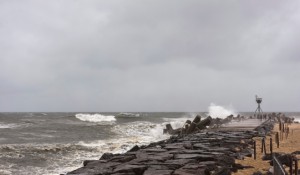 Insurance companies reviewing Hurricane Sandy claims will be looking carefully at your insurance policy coverages, limitations, deductibles and the damages you sustained. However, they’ll be paying special attention to how much damage was caused by wind versus water. Here’s why they care about the issue.
Insurance companies reviewing Hurricane Sandy claims will be looking carefully at your insurance policy coverages, limitations, deductibles and the damages you sustained. However, they’ll be paying special attention to how much damage was caused by wind versus water. Here’s why they care about the issue.
Anti-Concurrent Clauses Save Insurance Companies $
It’s no secret that most storms are a combination of wind and water. While homeowners’ insurance policies generally cover damage due to wind, water damage is another story – especially when flooding causes the damage. Insurance companies have devised a way to deny paying valid claims through something called an anti-concurrent clause, which limits what insurers have to pay out when two events happen at roughly the same time; in most cases, this includes wind damage and water damage.
The clause states that if one event is covered and the other is not covered, then the claim will be denied. While a bit confusing and seemingly unfair, insurance adjusters who see both types of damages sometimes fail to fully investigate claims and simply apply the anti-concurrent clause – hoping that policyholders will accept their fates without question. In the end, it equates to money saved for insurance companies.
How An Experienced Bad Faith Attorney Can Help
Policyholders who feel that their insurance company has denied their good faith claim under any circumstances can fight back with the help of an experienced bad faith attorney who can review your policy, your claim, analyze the reason(s) for denial, gather evidence to file an appeal and take the insurer to court when necessary. At Belluck & Fox LLP, we make sure that bad faith insurance claim victims know that they don’t have to be a victim twice. Contact us today to find out how.


